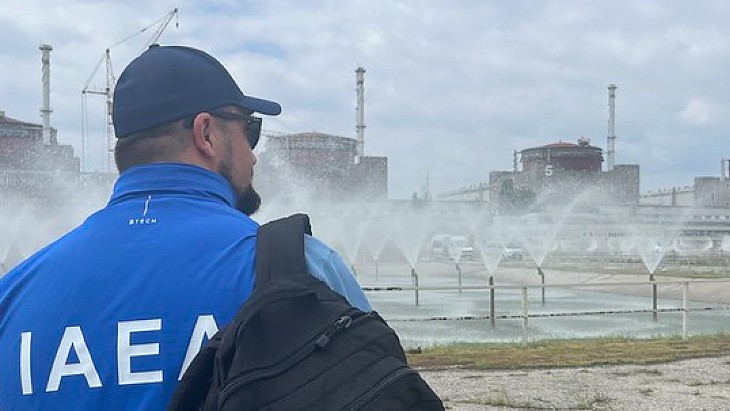The transition of the unit to cold shutdown began on Monday and the plan, the IAEA said, is that once it is in cold shutdown, those running Zaporizhzhia nuclear power plant, which has been under Russian military control since March 2022, "will carry out tests to identify why low levels of boron were found in the secondary cooling circuit of one of the unit’s steam generators".
The IAEA said it had been told by the plant operators "that the boron concentration in the affected cooling circuit remained below the limits permitted by its technical specifications. In addition, no radioactivity has been detected in the secondary cooling circuit. Borated water is used in the primary coolant to help maintain nuclear safety".
The plant operators decided to move it to cold shutdown after one of three 17.4 MW diesel boilers off-site started operating, providing heating to Energodar.
Two of the six reactors have been kept in hot shutdown to provide heating and steam for nuclear safety purposes on the site, as well as to provide heating for people living at the associated city of Energodar. This is despite the State Nuclear Regulatory Inspectorate of Ukraine issuing regulatory orders in June that all six units should be in cold shutdown. The IAEA said it had been told that there were no plans to bring a second unit into hot shutdown to replace unit 5.
In the agency's update it said its experts were still seeking to understand the cause of unit 6 losing power and having to rely on a diesel generator for 90 minutes last week. Its experts stationed at the plant are also set to observe the plant's planned emergency exercise.
IAEA Director General Rafael Mariano Grossi said: "Emergency exercises are very important for nuclear safety, especially in these times of heightened risk caused by the conflict."
Grossi last week welcomed the access agency experts had been given to visit all six main reactor control rooms, one after the other. They continue to seek the same access to all the turbine halls to be able to monitor compliance with the UN-backed safety principles - which include not firing at, or from, the nuclear power plant and not using it to store heavy military equipment.





_18570.jpg)
_16159.jpg)
_18938.jpg)
_33584.jpg)





